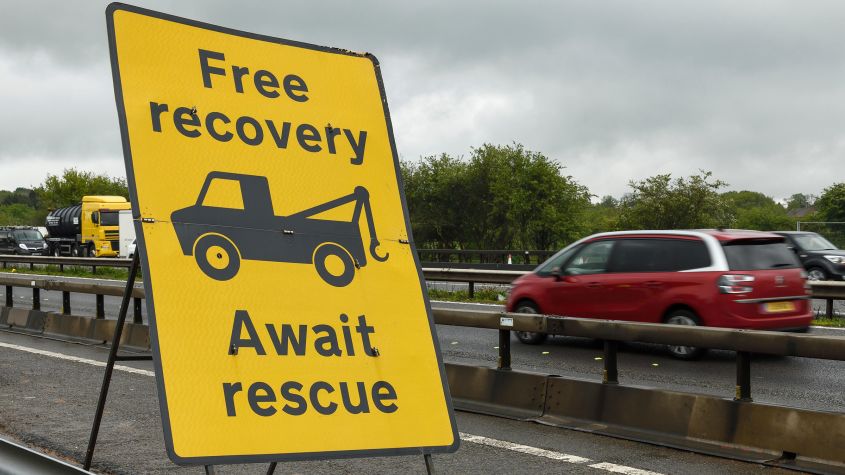


The number of vehicles recovered at the instruction of Highways England under ‘statutory removal’ powers has increased by a third over the last five years, with drivers paying £25m for recoveries, and road experts linking the rise of smart motorways to the year-on-year increases.
Statutory removal sees car drivers charged £150 to £300 for recovery from motorways and A-roads. Drivers have paid £25,257,000 for the practice over five years.
Advertisement - Article continues belowThe 2008 Removal and Disposal of Vehicles Regulations grant traffic officers the power to order the recovery of a vehicle if it is judged to “cause obstruction” or is “likely to cause a danger” to other road users. The precise circumstances under which such criteria are met vary, but include drivers whose recovery firms will take too long (typically over an hour) to attend, broken-down or damaged cars on live lanes, or drivers with no breakdown cover.
Using these powers, 12,045 vehicles were recovered in the 2015/16 financial year, and 16,026 in 2019/20. That’s a 33 per cent increase, a significantly greater rise than general traffic levels, which went up just 10.7 per cent between 2014 and 2019.
Between 2015/16 and 2019/20 some 68,628 vehicles were recovered by statutory removal, according to figures released to Auto Express by Highways England under the Freedom of Information Act. The vast majority (61,498) were cars and vans weighing 3.5 tonnes or less. Drivers of these pay £150 to £300 for recovery, with higher charges for vehicles that are upside down or have crashed off the road, for example. Trucks weighing over 18 tonnes can cost up to £6,000 to be recovered, depending on if they are laden or unladen, if they are upright, and if they are on or off the road.
Advertisement - Article continues below Advertisement Advertisement - Article continues belowAfter statutory removal, vehicles are taken to what Highways England deems “an appropriate place”. This is “normally” a compound run by FMG Support, a private firm that is Highways England’s “recovery manager”. FMG Support charges storage fees of between £10 (for motorbikes) and £35 (for vehicles over 18 tonnes) a day, with car drivers charged £20 per 24 hours. Motorists are charged £50 to £150 (£75 for cars) for the disposal of vehicles that are not collected. All these charges are set by law, not Highways England or FMG Support.
Despite those £25million charges, though, Highways England was not able to fully recoup all the expenses associated with statutory recovery, with the practice costing the Government-owned company £30,713,000 over five years – a shortfall of £5,456,000, attributed to “issues around [the] level of information available and ability to enforce repayment.”
Highways England was unable to tell us on which roads recoveries took place, but said traffic officers “work hard” to keep traffic moving and drivers safe. It added: “Since the powers were introduced in 2008, the number of vehicles removed by Highways England traffic officers has increased annually. It is not possible to draw any conclusions from the data released, other than to note traffic levels have steadily increased since this time.”